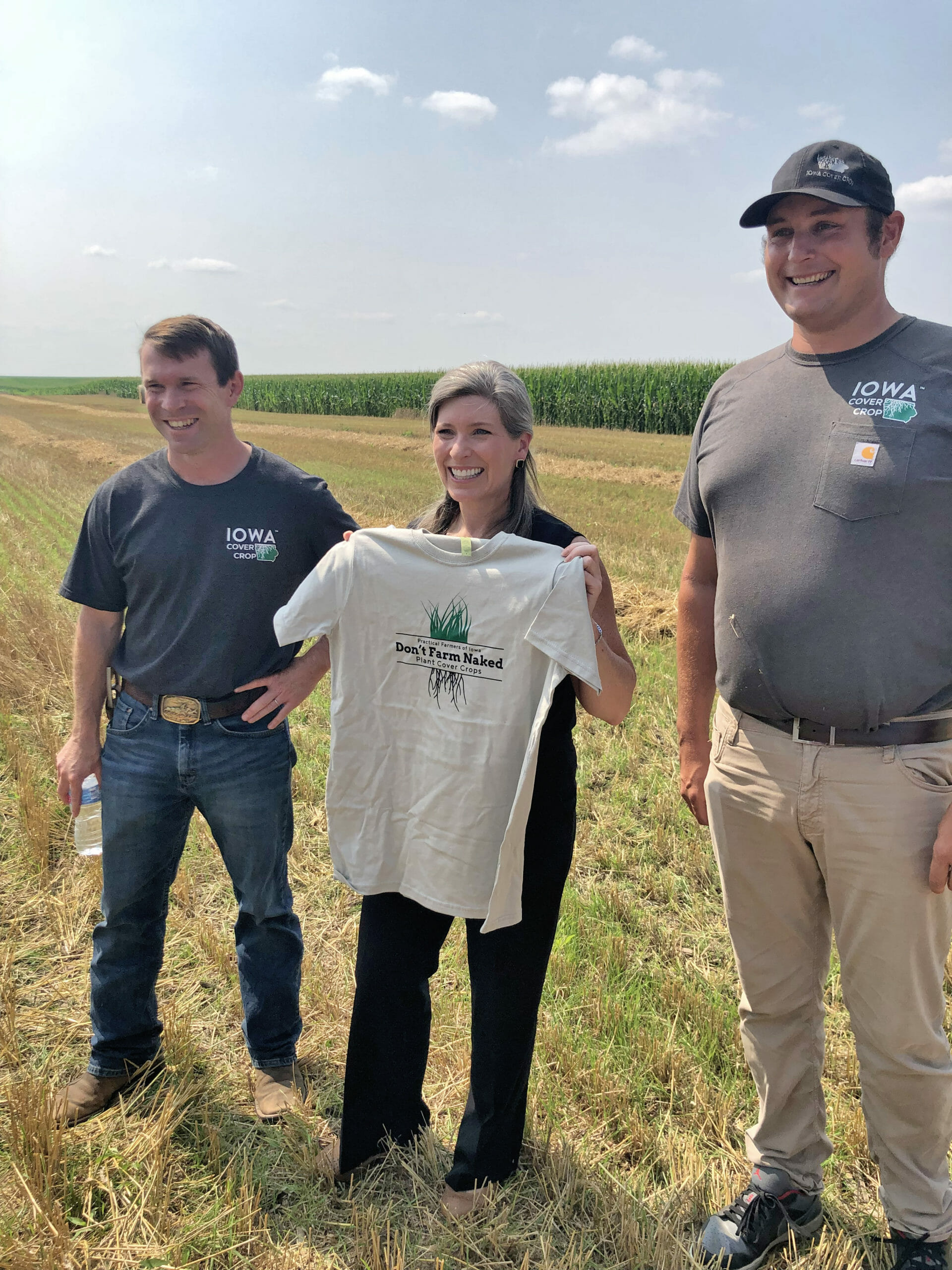Finding Our Voice
Eschewing political definitions and avoiding partisanship is vital for preserving Practical Farmers’ big-tent membership and our value of welcoming everyone. But we also know that government policies and programs at various levels have an immense impact on the lives of our members and in shaping modern agriculture.
That’s why our board of directors and policy committee have authorized PFI to engage with specific policy issues related to conservation, beginning farmers, on-farm research and Iowa’s Nutrient Reduction Strategy. Within these strategic areas, PFI and its members have had success engaging with decision-makers, both publicly and behind the scenes, to promote our vision for a better agriculture. The result has been more practical tools available to farmers and landowners and fewer barriers to pursuing innovative agriculture alternatives. Through this outreach, members are ensuring that the voices of farmers and landowners are part of larger conversations about the future of agriculture.
Despite the COVID-19 pandemic, PFI members found ways to connect with decision-makers and continue making their voices heard. Here are a few policy-related activities PFI members or staff have participated in this year.
Ag Policy and Building Resilience
Early in spring 2021, several farmers from rural southwest Iowa – Ron Rosmann, Denise O’Brien and Seth Watkins – met virtually with staff from U.S. Rep. Cindy Axne’s office to discuss the important role federal policies and programs can play in building resilient farms and communities in the face of a changing climate. The farmers asked the congresswoman’s office to consider supporting increased funding for working-lands programs like the Sustainable Agriculture Research & Education program, the Conservation Stewardship Program and the Environmental Quality Incentives Program.
“It’s important for us farmers to go to town hall meetings and connect with legislators,” Denise says. “We farmers are the ones that live the reality of agriculture and climate change, and if we want to have a voice, it’s important for us to attend these meetings and make our voices heard no matter the party of the elected official.”
Showcasing Sustainable Farming Practices
Several PFI members hosted elected officials on their farms to share their experiences and help educate decision-makers on sustainable farming practices and systems. In April, Axne visited Tamara Deal’s farm in Guthrie County, Iowa, to learn more about cover crops and hear how federal programs can support farmers’ and landowners’ transitions to more resilient systems.
In July, U.S. Sen. Joni Ernst met with Bill Frederick and James Holz, co-founders of Iowa Cover Crop, on Bill’s farm in Greene County. Topics of discussion included cover crops, small grains and the opportunities for new business and enterprises associated with a transition to resilient, extended-rotation systems. “I think it’s important that legislators and other influential people see what is happening in their districts and hear personal stories,” says Megan Holz, co-owner of Iowa Cover Crop.
“They can see the data and hear the news bites, but when Senator Ernst visited us, she was able to hear firsthand the story of how we were able to build a new business and leave our corporate jobs to come back to the farm.”

Iowa Sen. Joni Ernst, center, poses with Bill Frederick (left) and James Holz (right) while holding a PFI “Don’t Farm Naked” shirt.
Tackling Local Meat Processing
During the 2021 Iowa legislative session, PFI staff and members worked to educate decision-makers about the challenges and opportunities associated with local meat processing capacity in Iowa. Working with state Rep. Chad Ingels, a farmer and PFI member, PFI staff sought input from farmers, meat processors and industry experts on barriers to increasing small-scale processing capacity in Iowa.
As part of the effort, PFI members, including Aaron Lehman and Ryan Marquardt, spoke at a press conference supporting the need for more meat processing capacity, and many members attended legislative hearings or contacted their state representatives and senators to share their own experiences and challenges. The effort paid off. In June, Governor Reynolds signed House File 857, otherwise known as the Butchery Innovation and Revitalization Act, into law. The bill will provide grants to current and aspiring small-scale meat processors to build additional capacity and sets up a task force to examine and make recommendations about chronic labor shortages in the meat processing industry.
What’s Next
These are just a few highlights of policy-related activities PFI members and staff have participated in over the last year, but we also do not work alone on these efforts. We enjoy support from many partner organizations, including that National Sustainable Agriculture Coalition; Iowa Farmers Union; Center for Rural Affairs; Women, Food and Agriculture Network; and more. As we look towards 2022 and the lead-up to a new farm bill, we’ll be continuing our work with these partners and our members to make sure your voices – and our collective vision for a better agriculture – are heard loud and clear.
